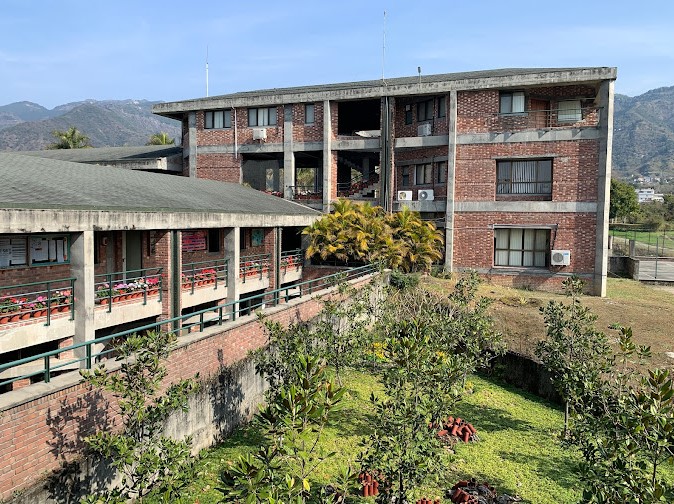Why Choose a CBSE School for Your Child’s Education?

Selecting the right school is one of the most important decisions you’ll make as a parent. You want a place that will not only teach your child core subjects but also help them grow into confident, skilled, and responsible individuals. In India, many parents prefer CBSE schools because of the balance they offer between strong academics, modern teaching, and values-based education.
If you’re wondering whether a CBSE school is the right choice for your child, this guide will help you understand why so many families trust the CBSE system.
What is CBSE?
CBSE stands for Central Board of Secondary Education. It is a national education board recognised by the Government of India. Over 27,000 schools in India and abroad follow the CBSE curriculum. From small towns to big cities, CBSE schools are known for offering a structured and standardised syllabus that helps students build a solid foundation.
1. Strong Academic Foundation
One of the biggest reasons parents choose CBSE is that it focuses on clear concepts and understanding rather than rote learning.
- The syllabus is well-structured and follows a logical order.
- NCERT textbooks are simple, precise, and easy to follow.
- Concepts are explained with examples, activities, and exercises.
This helps students develop strong basics, especially in maths and science, which are essential for higher studies and competitive exams.
2. Ideal for Competitive Exams
If your child wants to appear for entrance exams like NEET, JEE, UPSC, or NDA, the CBSE curriculum gives them a head start.
- These exams are largely based on NCERT books, which are used in CBSE schools.
- Students become familiar with the exam format and question styles early on.
- Regular practice and mock tests prepare them for real challenges.
This is why many parents see CBSE as the best path for future success in professional courses.
3. Focus on Holistic Development
CBSE schools don’t just teach subjects—they also work on character building, communication skills, and creativity.
- Sports, arts, music, and drama are integrated into the curriculum.
- Activities like debates, quizzes, and projects encourage curiosity.
- Value education and life skills lessons build empathy and responsibility.
This balanced approach helps your child grow into a confident, well-rounded person.
4. Continuous and Comprehensive Evaluation (CCE)
CBSE introduced CCE to reduce exam stress and encourage continuous learning.
- Instead of just one big exam at the end, students are assessed through projects, classwork, oral tests, and activities.
- Teachers track progress all year and give personalised feedback.
- Children feel less pressure and can improve steadily.
5. Modern Teaching Methods
Many CBSE schools use digital classrooms, smart boards, and online learning to make lessons engaging.
- Videos and animations help explain complex topics.
- Interactive quizzes keep students interested.
- E-learning platforms make revision easier.
This blend of traditional teaching and technology prepares students for a modern world.
6. Easy Transfer Across India
If you need to move cities because of work or family reasons, CBSE schools make transitions smoother.
- Since the syllabus is the same across the country, your child won’t struggle to adjust.
- Admission procedures and grading patterns are also standardised.
This consistency is a big relief for many parents in transferable jobs.
7. Emphasis on Languages
While CBSE focuses strongly on English and Hindi, it also encourages learning regional and foreign languages. Many schools offer options like Sanskrit, French, and German, giving children the chance to explore new cultures.
8. Equal Focus on Sports and Extracurriculars
CBSE schools actively promote sports, yoga, and fitness. Annual sports days, inter-school competitions, and clubs help children discover their talents and stay healthy.
9. Skill-Based Education
Recent updates in CBSE encourage vocational and skill-based courses. Subjects like Artificial Intelligence, Financial Literacy, and Coding have been introduced to keep education relevant and practical.
10. Values and Citizenship
CBSE schools also teach important lessons about being good citizens. Social science and moral education help children understand:
- The importance of respecting others
- Taking care of the environment
- The value of honesty and hard work
These lessons shape them into responsible adults.
What Should Parents Look for in a CBSE School?
When you start shortlisting schools, check for:
- Qualified teachers with good experience
- Well-equipped labs and libraries
- Safe and clean campus
- Balance between academics and activities
- Support for different learning needs
- A caring environment that feels like a second home
A Glimpse of Kasiga School
If you are looking for a top CBSE school in Dehradun, Kasiga School is a great example. As a co-ed boarding school, Kasiga offers the CBSE curriculum in a nurturing environment where children also learn life skills, leadership, and independence. With modern classrooms, experienced teachers, and a focus on all-round development, Kasiga helps students discover their strengths and grow confidently.
Final Thoughts
Choosing the right school is about more than academics. It’s about finding a place where your child feels happy, inspired, and motivated to learn. A CBSE school can offer your child:
- A strong academic foundation
- Preparation for competitive exams
- Modern teaching methods
- A safe, supportive environment
- Opportunities to grow as a person
Whether you are in a big city or a smaller town, CBSE schools combine tradition with innovation to give your child the best start in life.





